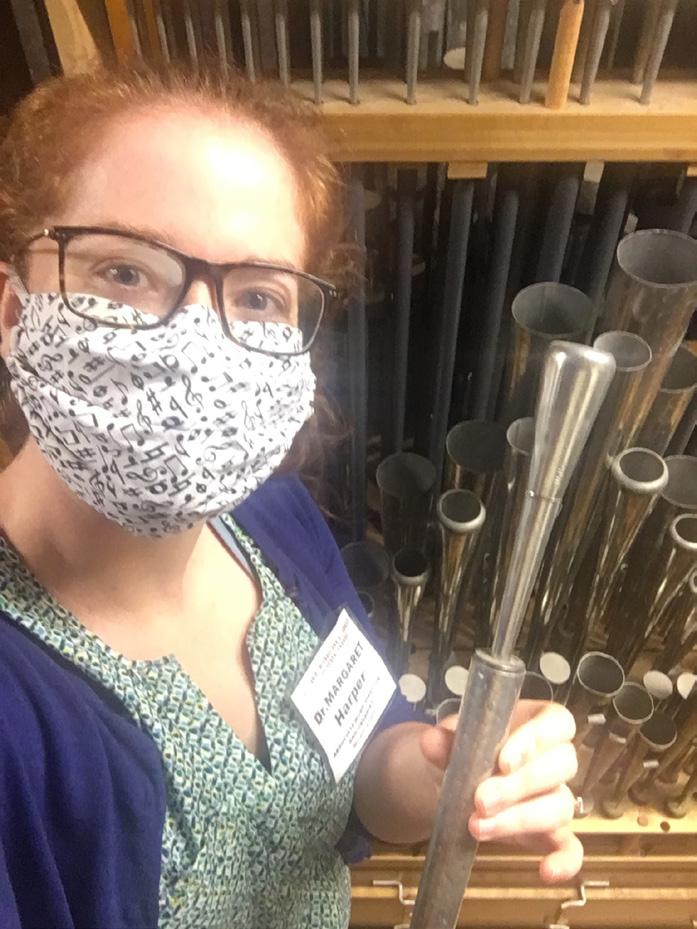
3 minute read
... Would [Not] Recommend
A Message from Vice Rector Ken Brannon
Dear Friends,
I saw the funniest thing on Facebook recently. It was a t-shirt that had the year “2020” in bold letters, and then underneath showed the usual five-star rating system with only one star given and the phrase: Would not recommend.

I think that’s how many of us are feeling right now. We’d just as soon fast forward to 2021 and pray that things get better next year. But I’ve been thinking a lot about the blessings we are receiving now. How are we being reshaped and rewired for a new reality? God’s reality?
Our Rector, Chris, often says, “Don’t let a good crisis go to waste.” So I’m taking him up on his challenge. What goodness can we glean from this time?
In this letter, I would like to talk about race. Just writing those words, I know there are some people already penning letters to me asking why I am focusing on race rather than being “color-blind.” Friends, the simple truth is that only white people have the luxury of being “color-blind.” It’s part and parcel of white privilege.
Let me give you a real-life example: On an evening in early June, when the protests were just beginning in Dallas, my 19 year old son and I walked from our Uptown home near McKinney Ave. to downtown. We wanted to bear witness to what was happening. Things began peacefully enough, but became more ominous as we neared City Hall. There were more police cars and more helicopters. There were more protesters and more rioters (there is a difference). There were more broken windows and more graffiti scrawled on building walls. The city was on edge.
When we decided to return home, we unwittingly came upon the Whole Foods that had just been looted. Police vehicles were everywhere, including armored vehicles. As the police established a perimeter around the store and began arresting people by the dozens, Isaac and I found ourselves trapped in the middle of it all. I was afraid.
And here’s where white privilege came into play. All I wanted to do was return home safely, but I couldn’t figure out how to do so, because everything around us was so fluid. In front of us were police officers arresting looters and shouting out orders. Behind us and to both sides were people fleeing.
So what did I do? I approached the police officer closest to us, explained that we lived on Howell Street, and asked how best to get home. Pausing for a second, he said, “The safest way is to walk right through this gauntlet of police officers. We can’t guarantee your safety anywhere else.” He was stern, but kind. He was “protecting and serving,” as police around the country are charged to do. I was grateful.
As we walked through the unfolding drama and past the flashing lights, I wondered aloud to Isaac: “If I was Black, would I have been given the same benefit of the doubt? What made me so confident that the police officer would help me? How many of those being arrested had broken the law and how many were simply presumed guilty?” It’s these kinds of questions… hard questions…reflective questions… that open our minds and hearts to those around us. Binary thinking won’t save us. Increasing spiritual depth and complexity may.
I’ve been engaging this moment by attending prayer gatherings led by Black clergy and reading books that challenge my perceptions about race, such as “The New Jim Crow: Mass Incarceration in the Age of Colorblindness,” by Michelle Alexander and “White Fragility: Why It’s So Hard for White People to Talk About Racism,” by Robin DiAngelo. I’m seeking out voices different than mine, including news outlets I don’t normally watch. In a time when crisis can constrict our line of sight, I’m trying to widen my view.
“Don’t let a good crisis go to waste.” I find myself being opened to the world in new ways that I expect will make me a better human being and a better priest. Years from now, when I look back at 2020, I might actually give it five stars: Would definitely recommend.
Ken +










